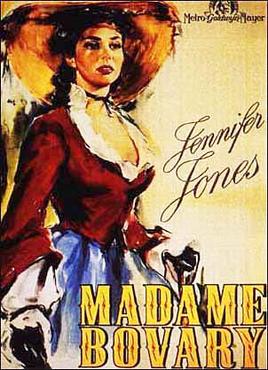A young girl (Jennifer Jones) living a rural country life dreams of romance, glamour and passion. When she marries a village doctor (Van Heflin), her dreams are dashed in a life of frugality, motherhood and the mundane. But when she catches the eye of an aristocrat (Louis Jourdan), her old dreams are aroused. Based on the classic novel by Gustave Flaubert and directed by Vincente Minnelli. Like many great novels (think MOBY DICK or THE GREAT GATSBY), it is nigh impossible to capture all the complexities and nuances of a great piece of literature and so it is with MADAME BOVARY. That aside, Minnelli captures the essence of the novel and while this is surely Minnelli's MADAME BOVARY and not Flaubert's, I find it a greatly under appreciated film. To avoid pressure from the censors, the film is framed with James Mason as Flaubert defending his novel against moral charges in an obscenity trial (this is a fact, Flaubert's novel was put on trial). Between the framing device, Emma Bovary's story is told. As an actress, Jennifer Jones is not always appropriately cast. She has a neurotic quality about her acting (her dramatic roles, anyway) and you often feel she's ready to jump out of her skin. But it's this very quality that makes her Madame Bovary unique. You grasp her itching under the strains of a pedestrian life and her desperation to achieve her dreams is palpable. It's my favorite of her dramatic performances. The film's visual highlight and one of Minnelli's greatest set pieces is a stunning ball sequence where, for one night at least, her dreams become a reality. The score by Miklos Rozsa is one of his very best. With Gladys Cooper, Alf Kjellin, Gene Lockhart, Harry Morgan, Ellen Corby and Frank Allenby.

No comments:
Post a Comment